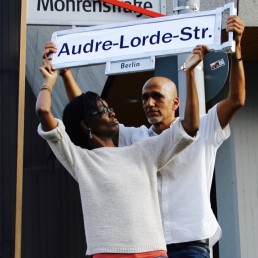"The former colonizers, the Global North, are still determining the general conditions, the negotiations on how the colonial history is looked back on and reappraised, is made visible."
- Tahir Della
"The former colonizers, the Global North, are still determining the general conditions, the negotiations on how the colonial history is looked back on and reappraised, is made visible."
- Tahir Della
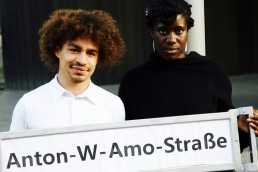
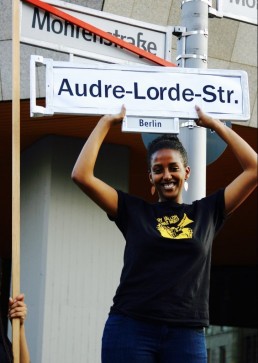
\\\\\\\\\\\\Streetnames
In various German cities, one can find streets which are named after colonizers and which are a reminder of the brutal colonial times. However, there is little debate around this subject, and many activists have the impression that colonial crimes are glorified.
In various German cities, one can find streets which are named after colonizers and which are a reminder of the brutal colonial times. However, there is little debate around this subject, and many activists have the impression that colonial crimes are glorified.
A prominent example of this is the Petersallee in Berlin. The street is named after the “founder” of the former colony German East Africa, Carl Peters, who is known as “mkono wa damu” (the bloody hand) in present-day Tanzania and whose actions were glorified within the Nazi-era. In 1986, the Petersallee was rededicated to commemorate instead Hans Peters, who engaged in resistance against the Nazi regime. However, there is no debate about the colonial history and its continuing influence within the public space.
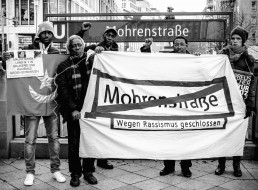
Another example of colonial-racist practice in the public space is the “M*straße” in Berlin-Mitte. For many people of African descent, the term is perceived as a discriminating name imposed by others, and which is connected to slavery and oppression. For many years, activists have demanded that the street be renamed.
Besides the renaming of streets, activists further demand that the colonial history be contextualized and discussed as a problem in the form of information boards, memorials, etc. Contextualizing the colonial history and implementing street renamings can help facilitate a self-critical debate around the issue and serve as a public sign against racism.
* M* here substitutes the racist term “moor” (in German: “Mohr”) - find more about this word here: eineweltstadt.berlin
"We’re confronted with labels. Be it the insult “N*” or the insult “M*”. It would be especially important that it is being heard why we do not accept these designations, why they are insulting."
- Karen Taylor
"We’re confronted with labels. Be it the insult “N*” or the insult “M*”. It would be especially important that it is being heard why we do not accept these designations, why they are insulting."
- Karen Taylor
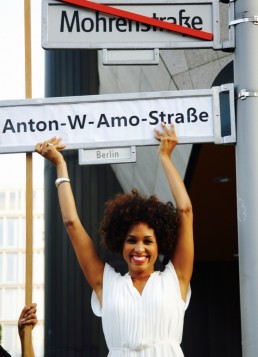
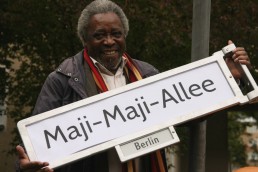
For further information see:
For further information see:
- Website of the alliance „Decolonize Mitte, which campaigns for the renaming of the M*street, provides information about decolonial processes in Berlin Mitte and more.
- Website of the project/traveling exhibition “freedom roads” provides a detailed list of German streets with colonial references
- Ausführliche Informationen zum “Afrikanischen Viertel” Berlin und die damit verbundenen Kämpfe um Straßenumbenennungen
- Dossier of the “development-policy recommendation Berlin” on the topic of colonial street names in Berlin in cooperation with the Initiative of Black people in Germany (ISD-Bund) and Berlin Postkolonial.
////////////\\\\\\\\\\\\////////////\\\\\\\\\\\\////////////\\\\\\\\\\\\
"It’s also about including the different perspectives, in particular the perspectives of the exploited people whose knowledge was appropriated and to give them space to portray their knowledge and their perspectives on their own."
- Iman Attia
"It’s also about including the different perspectives, in particular the perspectives of the exploited people whose knowledge was appropriated and to give them space to portray their knowledge and their perspectives on their own."
